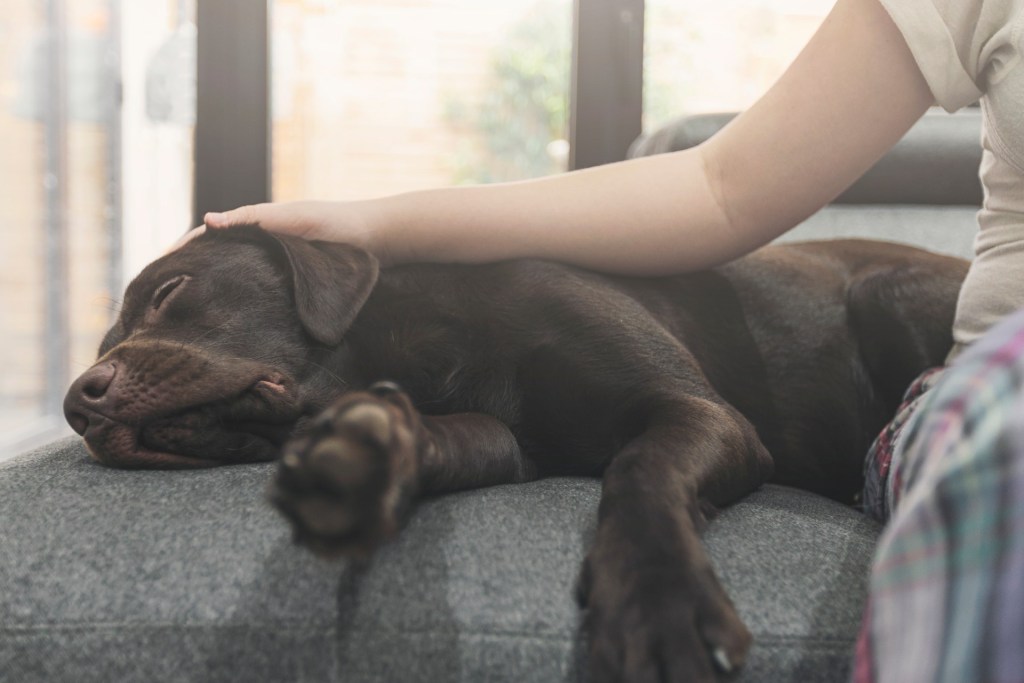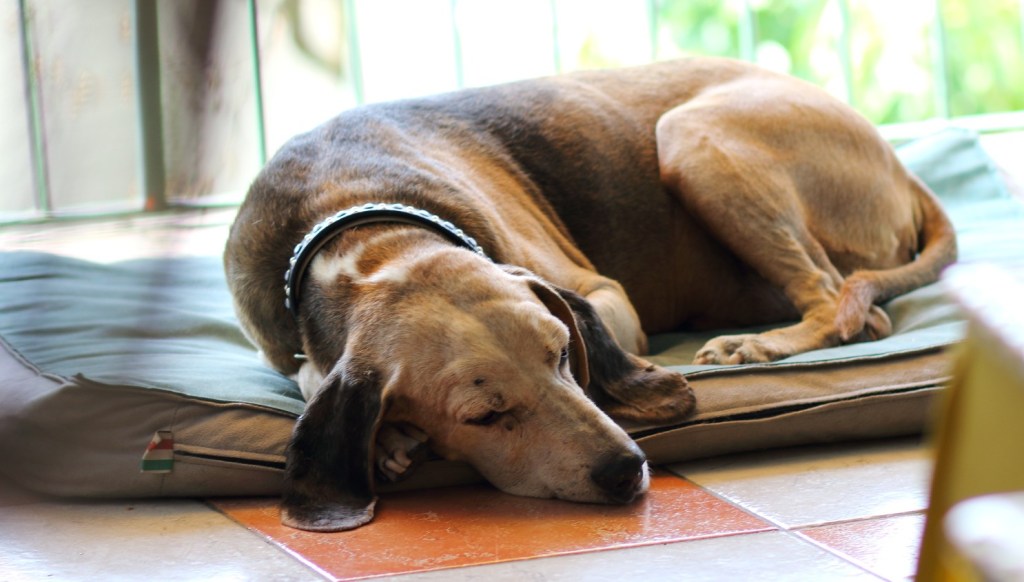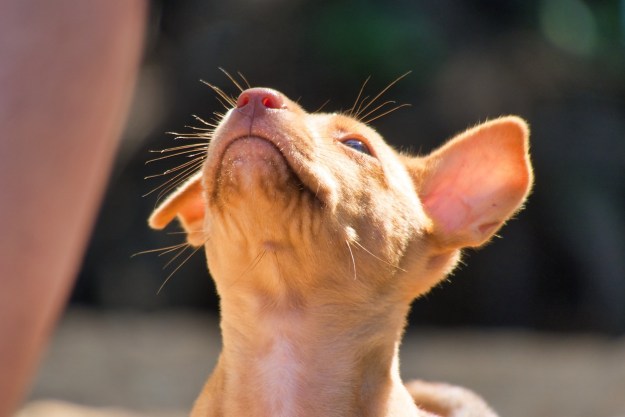Your sweet older dog is a joy to be with, but as dogs age they usually go through changes. If you notice your older dog doing things a little bit differently, there’s no cause for alarm. It’s just some typical changes.
Older dogs often spend a lot of time sleeping. You may have some questions about what’s normal and what isn’t, so let’s break down one of your dog’s personality traits to give you some peace of mind. Although there are times where you might want to worry about changes, many of your dog’s changes are just part of growing older.

How much sleep is normal for a senior dog?
If it seems like your senior dog is sleeping more than she used to, she probably is. According to Dr. Albert Ahn, veterinary adviser at MYOS Corp., the average adult dog will sleep for about 12 to 14 hours a day. When they get older, however, that number can increase to 18 hours a day, including the time they sleep overnight.
When a dog sleeps, notes Kennel Club Accredited dog trainer Joe Nutkins, they “help the body recover and heal.” Since it’s normal for a senior dog to nap more often, a gradual increase in sleep as your dog age shouldn’t worry you. What isn’t normal, though, is a sudden change in sleeping habits. This includes more frequent sleep, deeper sleep, insomnia, or confusion upon waking. Any and all of these behaviors can be normal for a senior dog — a category Nutkins defines as 7 years old and up — but a trip to the vet is never a bad idea when something new comes up.

What could too much sleep signal?
If your dog is sleeping too much, it could be a sign that your dog is dealing with some pain. If a dog doesn’t feel good, it could retreat and spend more time sleeping, trying not to make the pain worse.
Take your dog to the vet to rule out common causes of pain, such as arthritis or chronic illnesses. Your vet can be an essential part of your future plans, helping you decide if your dog’s behavior is out of the ordinary or a problem.
When to be concerned about your dog’s sleep
As a pet parent, you know your fur baby best, but you may not know exactly what to look out for in senior pups. Some things that could indicate a problem include:
- Sudden sleep changes
- Frequent naps
- Trouble falling asleep
- Disorientation upon waking
- Excessive snoring or irregular breathing
- Arthritis symptoms
Apart from sudden sleep changes, frequent naps can also be a sign of hidden discomfort, according to Nutkins, who works with arthritic senior dogs on a regular basis.
“Dogs are very good at adapting to discomfort, so may not show signs of any pain for months or even years, but this will affect [them] more as they adjust, compensate, and need to recover more, leading to needing more sleep each day,” Nutkins said. If your gray-faced pup is in pain, you may notice laziness, or even lethargy, when she is awake as well.
Canine cognitive dysfunction (CCD) is an age-related neurological issue that affects up to 22% of senior dogs, Ahn reports. It’s worth a trip to the vet if you notice your pet having trouble falling asleep or becoming increasingly disoriented while awake. Nutkins adds that pups suffering from CCD may become more active at night — a result of their confused sense of time. This is a great example of when a veterinarian can be especially helpful in diagnosing your senior pup and helping you all adjust to her changing needs.
Ahn also mentions that certain brachycephalic breeds — those with flat noses like bulldogs and pugs— are at risk for breathing complications as they age. Especially if they’re overweight, these pups may snore excessively or breathe irregularly in their sleep. A veterinarian can help guide you and your pet toward the best course of action should this be the case.
One last problem to look out for is a result of too much sleep. A senior dog may develop arthritis or lose muscle mass if they swap enough activity for sleep, which can result in stiffness, limping, or even lameness, Ahn states. You’ve got many natural and medicinal options for helping your dog regain muscle and keep joints strong, so it’s not the end of the world if your senior dog is sleeping too much. When in doubt, ask a vet!

How to help your senior dog sleep
You may have to make some changes to your dog’s sleeping situation to help encourage restful, restorative sleep.
• Change beds — a memory foam bed can help remove pressure from aching joints and make it more straightforward for your dog to get comfortable.
• Get gentle exercise — Exercise helps your dog get out energy but also encourages more restful sleep. It can encourage your pet to fall asleep in the evening and settle longer.
• Head to the vet — Your veterinarian could be a rich source of advice on how to help your dog sleep better. Sometimes medications for other issues can prevent your dog from sleeping.
Helping your senior dog thrive
An old dog that sleeps all day and night isn’t a problem. As long as there’s no underlying issue with your dog’s health, there’s no reason that sleeping a little more is an issue. Keep an eye on the small signals so that you can get advice from your vet if something seems unusual.

Your sweet, older companion is a joy to be around, so don’t let little changes in behavior worry you. As long as your vet isn’t worried and you’re keeping up with exercise and a proper diet, your pet’s sleep can help it feel rested for future, slower walks.
Editors' Recommendations
- 50 amazing boy dog names to consider for your new puppy
- These fluffy dog breeds make the best cuddlers
- Can dogs eat strawberries? Everything you need to know
- The best medium-sized dog breeds for your family
- Why do dogs have wet noses? They’re actually really important


